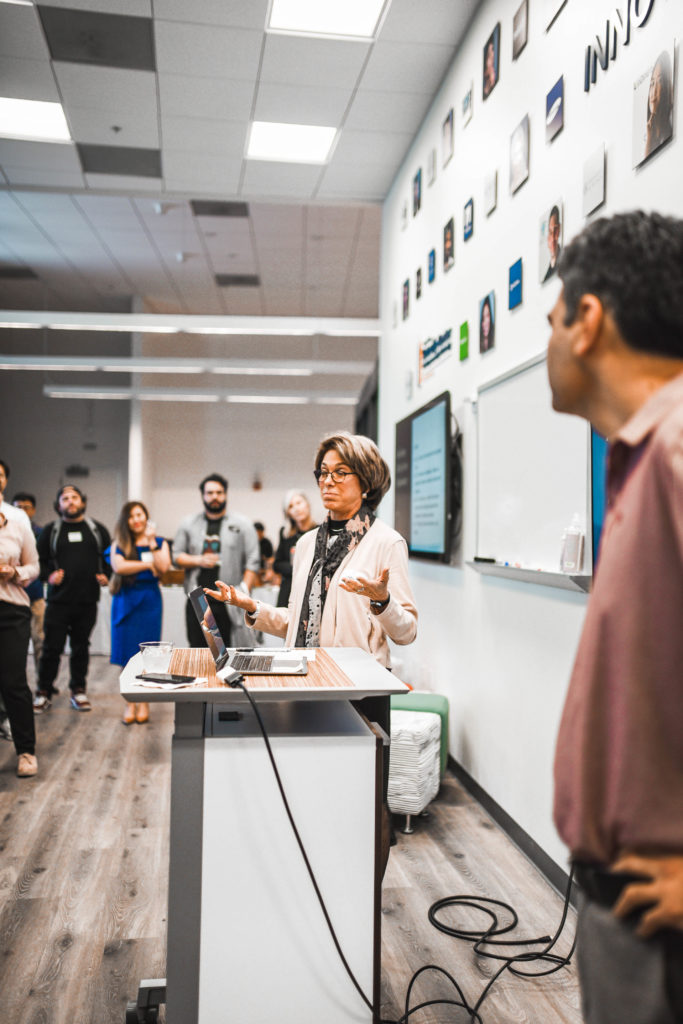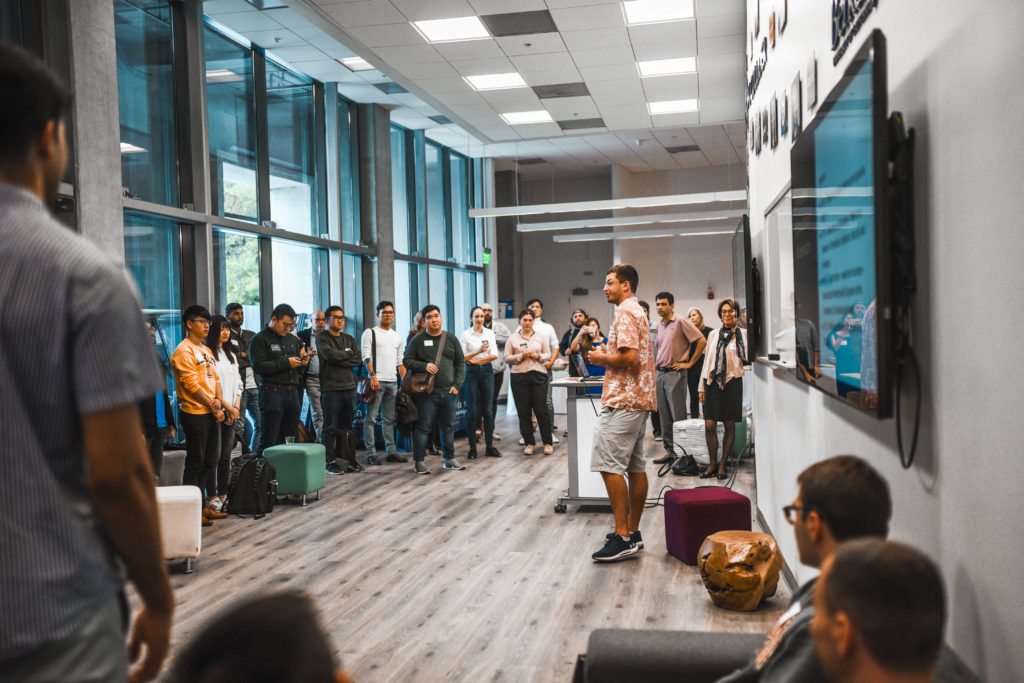Meet the teams: Berkeley Blockchain Xcelerator kicks off with first batch

On March 19, the Berkeley Blockchain Xcelerator welcomed its first batch of teams to the recently launched accelerator focused on blockchain startup education and support.

Laura Tyson, Faculty Director of Institute for Business and Social Impact at Haas School of Business and Ikhlaq Sidhu, Chief Scientist and Founder of Sutardja Center for Entrepreneurship & Technology, welcome the Spring Batch of the newly launched Berkeley Blockchain Xcelerator. 
Liam DiGregorio, business development for Blockchain at Berkeley, also extends a warm welcome from their student group, a key, founding partner for the Xcelerator.
The spring 2019 cohort is made up of 12 teams that utilize blockchain technology in a variety of ways, ranging from data ownership to tabletop gaming. AnChain.ai, Bitmark, DataAgora, Dyson Network, FourthState Labs, Insolar.io, PlayTable, Source, SWFT Pay, TruSource, Vinc, and zkSystems comprise the Spring 2019 Batch..
Dyson Network aims to “provide a decentralized and autonomous ecosystem” to improve transaction speeds via blockchain. According to founder Wei Wang, blockchain needs to be redesigned before it can compete with other payment service providers.
“Can we use bitcoin as a payment system, like Visa? I would say no,” said Wei Wang, founder of Dyson Network. “From a technical point of view, the scalability issue is what we need to solve.”
By redesigning blockchain message propagation mechanisms, Dyson Network aims to improve transaction propagation up to 100x without changing the native consensus that makes blockchain so effective.
SWFT Pay is also targeting transaction improvements by connecting existing payment services via cross-chain transfer. This exponentially increases payment applications and allows users to transfer across 30 blockchains. Additionally, SWFT Pay’s 0.1% transaction fee makes it extremely competitive among other payment services, some of which can charge fees up to 2%.
FourthState wants to make it easier to process payments by providing APIs to facilitate transactions in any digital currency with no transaction fees. Customers can enter their credit card information and businesses can receive payment in seconds.
To tackle the problem of decentralized data, DataAgora fits machine learning models to individual organizations’ datasets to generate insights. The team ensures that data can be analyzed and centralized without evading existing regulations around data privacy.
Showcasing the breadth of blockchain applications, PlayTable aims to “breathe new life into tabletop gaming.” A digital interface detects physical toys on the screen, which allows toy owners to customize and consolidate toys across different platforms. Currently, about 100,000 customers have already preordered the social gaming platform product.
“We’re making blockchain accessible at a mass consumer level by making it tangible,” said John Dempsey, founder of PlayTable. “You can actually feel it and use it — you don’t have to know a lot about blockchain to use it.”
Also on the physical side, Vinc is working to accelerate the transition to a low-carbon energy grid by using a blockchain-based platform for trading carbon credits. Vinc’s platform also collects real-time vehicle charge data to incentivize electric vehicle owners to adjust their charging habits for greater energy conservation.

zkSystems is attempting to give smart factories full autonomy over their operations, which include purchase, production, and supply chain logistics. Currently, zkSystems has about €800,000 worth of projects through partnerships with Oracle and Sopra Steria.
Intent upon using blockchain for interconnectivity, Source is a platform that enables interoperability and ownership of data.
“We started thinking about how we could make apps talk to each other,” said Addo Smajic, a founder of Source. “Developers wanted to integrate their apps, and we wanted to provide the ability for apps to collaborate.”
Focusing on security, AnChain.ai has created a smart contract auditing sandbox, which scans most vulnerabilities in an accurate, affordable, and accessible manner. AnChain.ai has also released a situational awareness platform, which proactively protects crypto assets.
Bitmark helps users establish legal control and value over data, allowing users to establish property rights and prove chain of ownership, among other services. These “bitmark certificates” help people define digital property and secure ownership over digital information.
Last but not least, global team Insolar.io aims to transform the way the world does business. Insolar’s Blockchain Platform is an all-encompassing, open-source blockchain platform, designed to help organizations transact seamlessly, efficiently, and securely.

